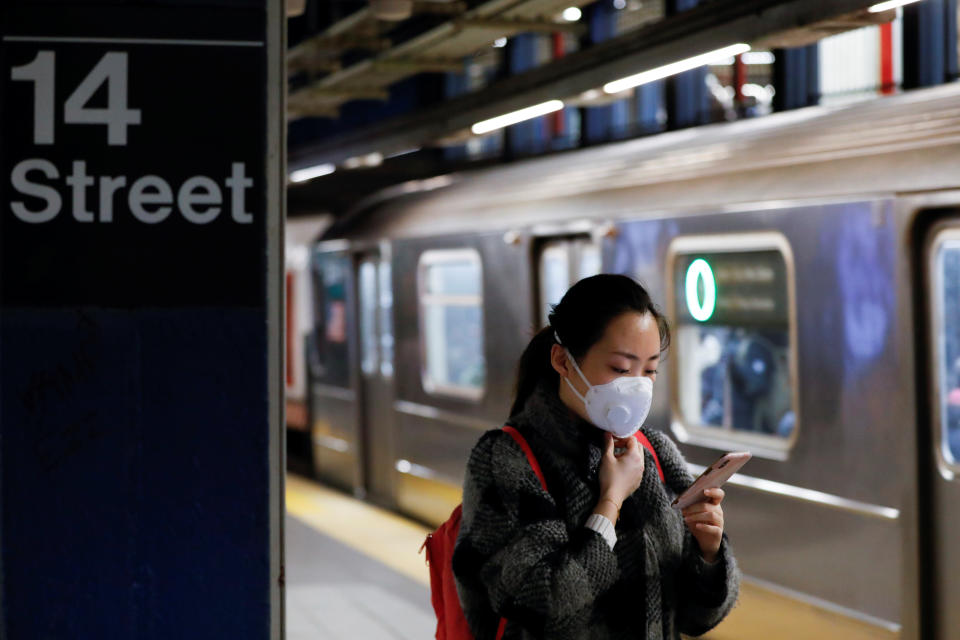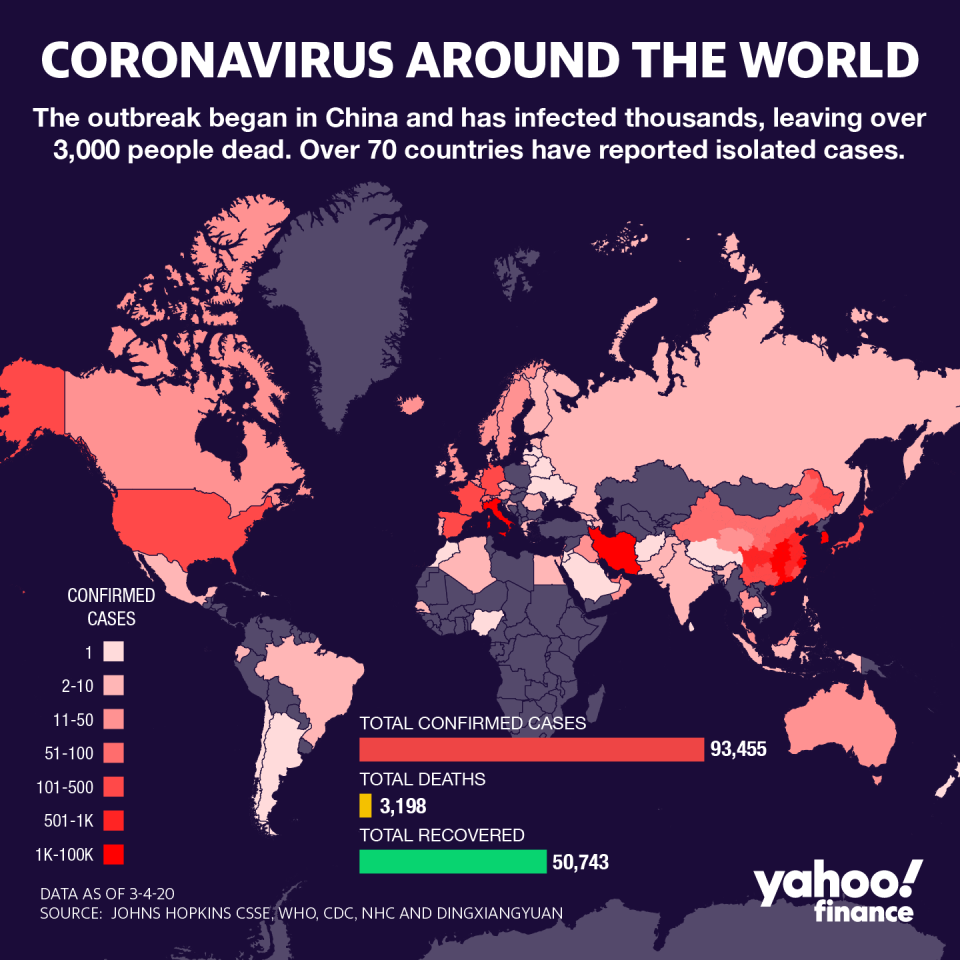There's 'no historical precedent' for working from home amid coronavirus fears
For millions of Americans, public transit has reinforced a newfound awareness of close proximity to strangers. A second case of coronavirus, or COVID0-19, in the New York City area, confirmed Tuesday by New York Governor Andrew Cuomo, and four more cases confirmed Wednesday, are heightening concern for commuters in the densely-populated metropolis who regularly rely on overcrowded trains, buses, and subways to get to work.
However, there’s little employees of U.S. companies can do, legally, to force their employers to pay their wages or to hold their jobs if they insist on either skipping work or working from home over fears of contracting the illness, at least under COVID-19’s current risk level.
“There's really no historical precedent for the CDC [Centers for Disease Control and Prevention], or working with OSHA [Occupational Safety and Health Administration], telling employers that they have to do this or that,” Aaron Goldstein, a partner with the Seattle law firm Dorsey & Whitney, told Yahoo Finance. “And I think it's unlikely that they will, given the reaction that we're seeing to coronavirus, which is employers preemptively going well beyond what OSHA would ever require.”

Still, employers must comply with federal, state, and local laws that require certain worker safety precautions, though there’s no U.S. law directly setting boundaries for worker attendance during viral outbreaks.
U.S. policy stands in sharp contrast with France where workers have already exercised their legally protected right to walk off the job due to coronavirus fears.
‘Technically the employer could fire that person’
Federal level protections already in place are governed by agencies ranging from the Department of Health’s OSHA, to the CDC, to the Equal Employment and Opportunity Commission (EEOC), and include laws codified by the Americans with Disabilities Act (ADA) and the Family Medical Leave Act (FMLA).

OSHA protections focus on employees who work in high risk and very high risk environments — such as heath care providers, first responders and laboratory personnel — and are largely mute with regard to workers who don’t typically do their jobs in environments that pose a health risk. In response to the 2009 H1N1 global swine flu outbreak OSHA revised its guidance to require that employers provide specialized protective equipment for high and very high risk workers, and updated definitions for at-risk workers.
“Strictly speaking, legally, if an employee without any kind of paid time off, and without any kind of sick leave, and the person refused to go to work, I think technically the employer could fire that person, but I think that's very unlikely given the public relations consequences of that,” Goldstein said.
Local and federal authorities could impose new rules
In theory, a worker arguing that they had no economic choice but to show up for work and be exposed to risk of contracting COVID-19 could attempt a claim under OSHA’s General Duty Clause, Goldstein said, though he expects the argument would fail absent a more serious outbreak. The clause states that employers must furnish employees with “employment and a place of employment which are free from recognized hazards that are causing or are likely to cause death or serious physical harm” to employees.
An alternative argument could be posed under theories of worker’s compensation. While there’s little precedent for such cases, California’s workers compensation board did recognize claims involving workers who were exposed to Valley Fever in areas where the illness posed a substantially higher risk.
Should the outbreak become more widespread, or become designated as a more serious travel risk by the CDC, the current rules may no longer apply. Plus, local and federal authorities could impose stay-home requirements on public employers, and potentially on private employers, as well.
“I think if this turned out to be more deadly, then kind of everything's off the table — all of the precedent goes out the window,” Goldstein said.
According to lawyers at Proskauer, courts have also considered viral-related protections for employees under the ADA, where employers have made retention decisions based on an employee’s potential to become ill during future, non-work-related travel. In a published article, Proskauer attorneys highlighted a case from the Eleventh Circuit that permitted a company to fire its employee based on the employer’s concern that its employee, during personal travel to a high-risk area, may contract Ebola virus.
In 2009, also in response to the H1N1 outbreak, the EEOC published Pandemic Preparedness Guidance to clarify its definition of an employee who poses “direct threat.” The designation is important because under ADA rules employers are prohibited from inquiring about employee disabilities, such as serious illnesses, unless the employer can either show that the inquiry is job-related and business necessary, or has a reasonable belief that employees pose a direct threat to the safety of themselves or others.
As of Wednesday afternoon, U.S. authorities had confirmed 9 deaths and 128 cases of coronavirus. The World Health Organization (WHO) designated the outbreak as a “global level risk” and said based on its low spread rates across most countries, it can be contained. Health and Human Services Secretary Alex Azar in referencing the WHO’s assessment said the magnitude of the outbreak had not reached levels seen with previous pandemics.
Alexis Keenan is a reporter for Yahoo Finance. Follow her on Twitter @alexiskweed.
Follow Yahoo Finance on Twitter, Facebook, Instagram, Flipboard, LinkedIn, YouTube, and Reddit.

